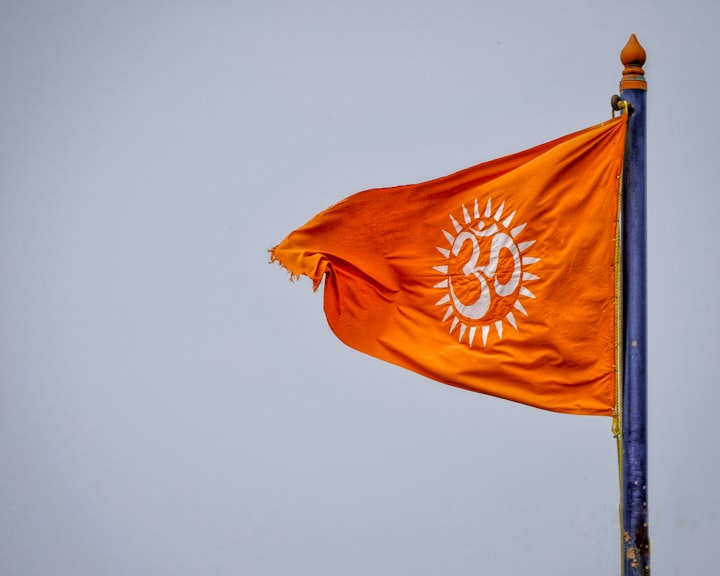Hinduism: The Ancient and Diverse Path of Spiritual Wisdom
Hinduism Explained

Hinduism, practiced by over a billion people worldwide, is not just a religion; it's a way of life, a philosophy, and a cultural tapestry that has woven its threads across thousands of years. Its roots are deeply embedded in the Indian subcontinent, making it the world's oldest active religion, with a history that stretches beyond recorded time. Although Hinduism's origins are shrouded in the mists of antiquity, it's safe to say it predates the dawn of recorded history.
Hindus themselves refer to their spiritual tradition as "Sanatana Dharma," which translates to "the eternal tradition." The essence of Hinduism can be distilled into several core beliefs:
1. Belief in One Universal Soul (Brahman): At the heart of Hinduism is the concept of Brahman, an all-encompassing, formless, and genderless universal soul—the ultimate reality. It is the source and essence of everything in the universe.
2. Immortal Individual Soul (Atma): Hindus believe in the existence of an individual, immortal soul, referred to as "Atma." This soul journeys through the cycle of birth, death, and rebirth (reincarnation), with the quality of each life being determined by the accumulation of karma.
3. Karma: Karma is the law of cause and effect, where every action, whether good or bad, has consequences. These actions influence a person's future experiences, and individuals must strive to accumulate good karma through righteous deeds and intentions.
4. Moksha: The ultimate spiritual goal in Hinduism is Moksha, the liberation from the cycle of birth and death (samsara). It is achieved by realizing one's oneness with Brahman and attaining a state of spiritual freedom.
5. Sacred Texts: Hinduism possesses an extensive collection of sacred texts. The Vedas, considered the oldest religious scriptures, are the foundational texts. Alongside the Vedas are philosophical writings like the Upanishads, moral guidelines in the form of the Bhagavad Gita, and epic narratives such as the Mahabharata and the Ramayana.
6. Cyclical Time: Hindu cosmology acknowledges a cyclical view of time. There are four Yugas (ages): Satya Yuga, Treta Yuga, Dvapara Yuga, and Kali Yuga. We currently exist in the Kali Yuga, a time marked by spiritual decline.
7. Dharma: Dharma, often translated as "righteousness" or "duty," plays a pivotal role in Hinduism. It defines the proper behavior for individuals based on their age, caste, and social role. Observing one's dharma is essential to maintaining balance in the universe.
In addition to these core beliefs, Hinduism is renowned for its rich pantheon of deities. Prominent figures include Brahma (the Creator), Vishnu (the Preserver), Shiva (the Destroyer), Ganesha (the Remover of Obstacles), Devi (the Goddess), and revered incarnations of deities like Rama and Krishna.
The caste system, often associated with Hinduism, historically divided society into four main groups: Brahmins (priests and scholars), Kshatriyas (warriors and rulers), Vaishyas (merchants and farmers), and Shudras (laborers). This system aimed to assign roles based on abilities and duties rather than birth. However, over time, the caste system became more rigid and oppressive, with the emergence of the "Untouchables."
Despite the historical rigidity of the caste system, the modern world has witnessed significant changes. Hindus now mix freely in various aspects of life, such as education and employment. While some continue to marry within their caste, many intermingle with individuals from different backgrounds.
The practice of Hinduism varies significantly, as it accommodates a multitude of beliefs and rituals. Worship can be intensely personal, with many adherents showing devotion through prayer, meditation, and acts of charity. Temples are essential to the practice of Hinduism, serving as centers for devotion and celebration.
To capture the full essence of Hinduism is a profound and intricate task, and this overview barely scratches the surface. The religion's depth and diversity make it a dynamic and resilient spiritual tradition that has stood the test of time, offering a tapestry of wisdom and a vision of the divine that continues to inspire and influence the lives of over a billion people.
In recent years, Hinduism has also spread beyond the Indian subcontinent, making it a truly global belief system, embraced by diverse communities and individuals who find meaning and purpose in its teachings. Whether through its philosophical insights, spiritual practices, or cultural richness, Hinduism stands as a testament to the enduring power of ancient wisdom in the modern world.
About the Creator
Safwa Elouizi
Adventurer of words and explorer of ideas. I journey through the realms of creativity and limitless imagination, bringing you tales from the unconventional, knowledge from the extraordinary, and insights into the fascinating.






Comments
There are no comments for this story
Be the first to respond and start the conversation.